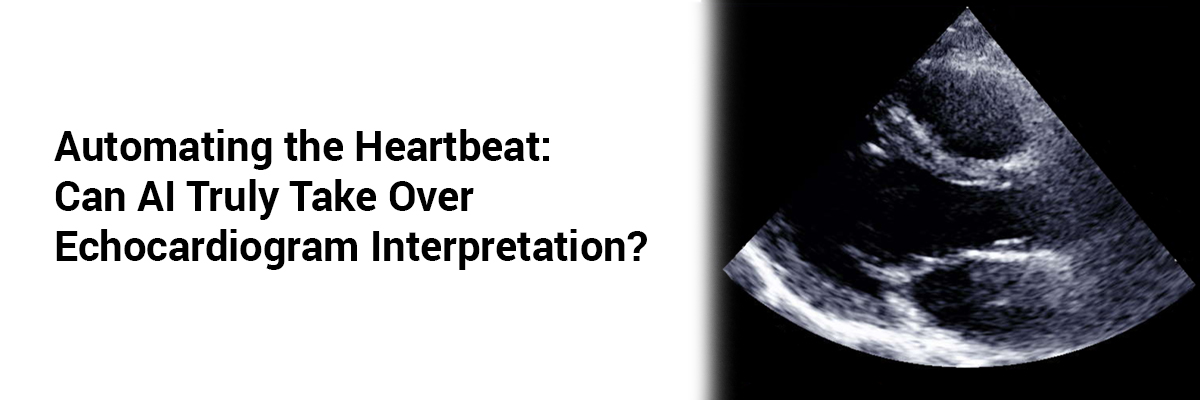
Automating the Heartbeat: Can AI Truly Take Over Echocardiogram Interpretation?
The increasing demand for cardiovascular diagnostics has placed significant pressure on echocardiography labs, often leading to delays in reporting due to the dependence on skilled human readers. A new study introduces PanEcho, an artificial intelligence (AI) system that may shift this paradigm by automating the interpretation of transthoracic echocardiograms (TTEs) with remarkable accuracy.1
Trained on over 1.2 million echo videos from more than 24,000 patients across the Yale New Haven Health System (YNHHS), PanEcho demonstrated strong performance across various diagnostic and quantitative tasks. It achieved a median AUC of 0.91 across 18 diagnostic classification tasks and a median normalized mean absolute error of 0.13 across 21 parameter estimations. Notably, it delivered near-human accuracy in estimating left ventricular ejection fraction and identifying conditions like severe aortic stenosis and ventricular dysfunction.
What sets PanEcho apart is its adaptability. Even in limited or point-of-care imaging scenarios—where image quality and standardization are challenging—the AI maintained a median AUC of 0.85 to 0.91, underscoring its potential for frontline deployment in emergency or resource-constrained settings.
While these results are promising, the path to full automation is not without caveats. Real-world deployment must navigate issues like data generalizability, workflow integration, medico-legal accountability, and transparency in AI decision-making. More importantly, AI should complement—not replace—human expertise, acting as a second reader or triage tool.
In conclusion, PanEcho illustrates that comprehensive, automated echocardiogram interpretation is no longer a distant goal. With continued validation and responsible integration into clinical pathways, AI could democratize cardiac imaging, enhance screening capacity, and alleviate workforce bottlenecks, particularly where expert interpretation is scarce. The future of echocardiography may be one where machines assist, but humans still decide.
Source: Holste G, Oikonomou EK, Tokodi M, et al. Complete AI-enabled echocardiography interpretation with multitask deep learning. JAMA Netw Open. 2024;7(6):e2416573.













Please login to comment on this article